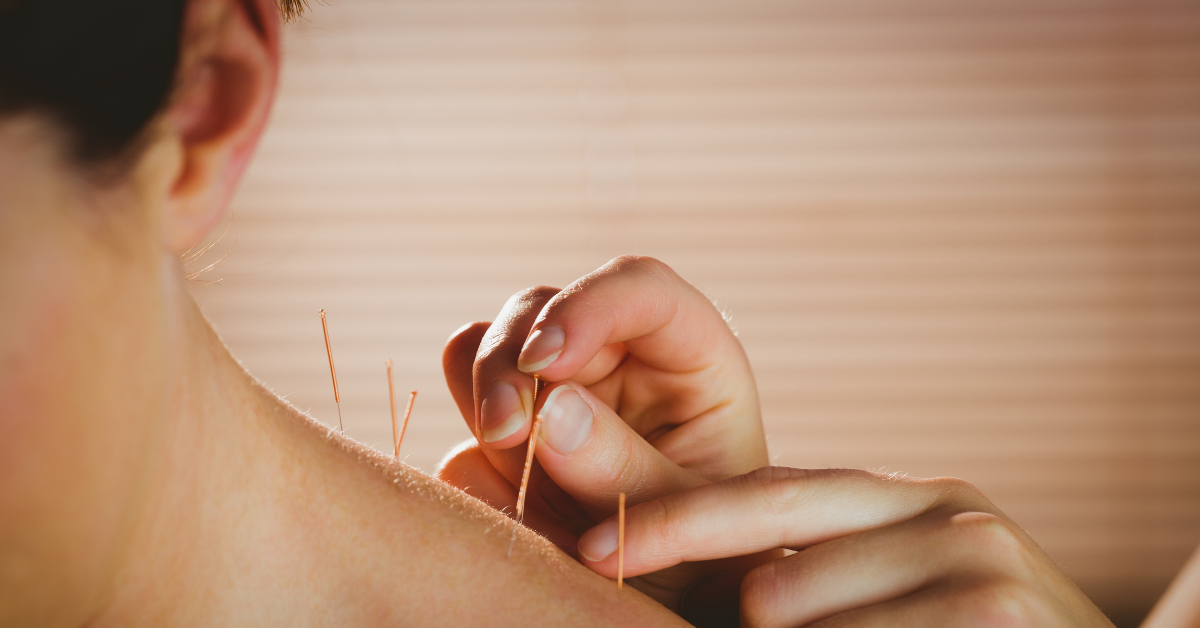
Many patients assume conversations about “alternative” medicine are not a fit for their primary care provider. So should a treatment like acupuncture have a place in your health routine? We asked Tryon Medical Partners to weigh in.
Both Western science and traditional Chinese acupuncture have the same goal of improving a person’s health, the Tryon doctors explain. A combination of the two systems creates an ideal partnership for the treatment and prevention of disease.
What is acupuncture?
Acupuncture involves the insertion of very thin needles through your skin at strategic points on your body. The practice of acupuncture started in China approximately 3,000 years ago.
Acupuncture is a key component of traditional Chinese medicine and is most commonly used to treat pain. However, it can also treat a host of other illnesses.
How does acupuncture work?
Traditional Chinese medicine explains that acupuncture will balance the flow of energy (chi) believed to go through pathways (meridians) in the body. Western medicine explains acupuncture as needles to stimulate nerves, muscles and connective tissue to boost the body’s natural painkillers.
There have been studies showing that acupuncture needle insertion can result in corresponding changes in the brain on MRI. A current meta-analysis study showed acupuncture can give long-lasting effects for the treatment of chronic pain.
What does acupuncture treat?
Acupuncture is said to be effective for chronic pain, including low back pain, neck pain, osteoarthritis and headaches, including migraines. But it can also be effective for:
- Nausea and vomiting (especially with chemotherapy treatment)
- Stress, anxiety and depression
- Muscle tension
- Menstrual irregularities and infertility
- Digestive disorders
- Nerve problems
- Smoking cessation
Studies suggest acupuncture can strengthen the immune system, as well.
How does insurance regard acupuncture?
Medicare announced in January 2020 that the Centers for Medicare & Medicaid Services (CMS) would cover acupuncture for chronic low back pain (as defined by CMS) for up to 12 visits in 90 days, with an additional eight sessions for those who demonstrate improvement.
This is, in part, to allow alternative medical care for pain and assist in the opioid crisis. Studies showed improvements in both function and pain for adults 65 years and older for chronic low back pain with the use of acupuncture.
Some commercial insurers also cover acupuncture.
Is acupuncture safe and does it hurt?
The risks of acupuncture are low with a competent, certified practitioner using sterile needles.
The most common side effects are bleeding or bruising at the needle insertion site. You should avoid acupuncture if you have a bleeding disorder, have a pacemaker or are pregnant. It should not be a painful procedure, but treatments may cause tingling, heaviness, soreness or numbness temporarily.
How can I know if acupuncture is for me?
Consulting with your doctor is the best way to know if acupuncture might be a fit for your health routine. Your primary care physician, or internal medicine specialist, serves to understand your entire medical and family history, your ongoing care and conditions, and recommends treatments and specialists as needed.
Schedule an appointment with your primary care doctor to discuss your options and see what treatment, including acupuncture, may be right for you.
